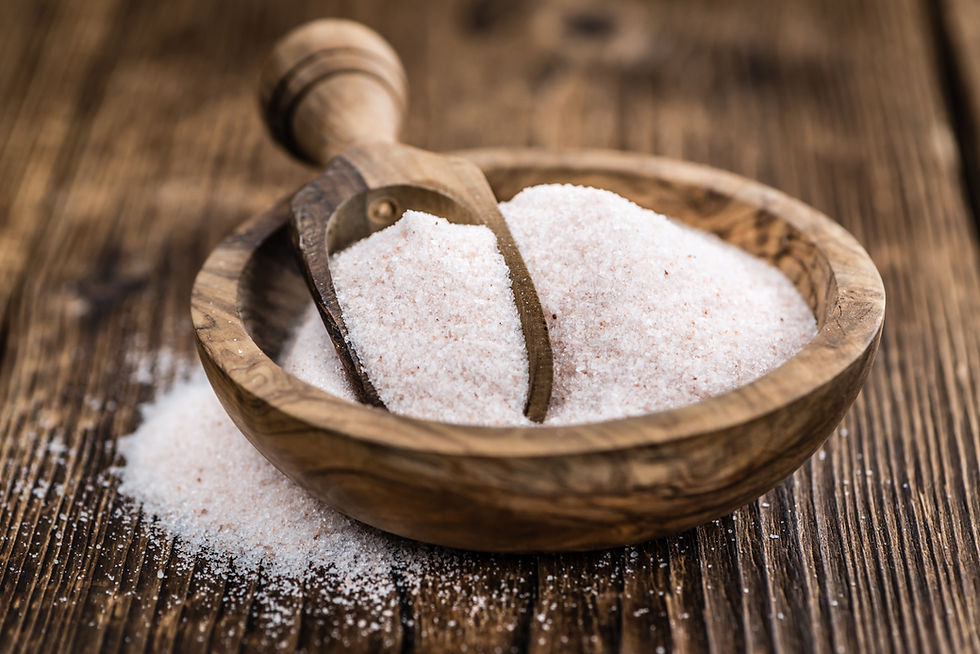
Salt is an essential dietary nutrient that all living things utilize. In its natural form, it is referred to as “unrefined,” having not been altered by man. Examples of this type of salt include Celtic Sea Salt, Pink Himalayan Salt, and Redmond Salt.
These types of salt contain over 80 essential minerals and natural elements necessary for good health. Unrefined salt is a whole food product that supplies the body with the proper balance of sodium, chloride, minerals, trace elements, and moisture.
Common table salt is “refined” and contains higher amounts of sodium and chloride than natural mineral salts. When processed, the salt is stripped of the essential minerals and moisture, giving it a longer shelf life but making it a lifeless product.
“Unrefined” salt is a crystallized mineral composed primarily of sodium chloride. It is processed from salt mines, evaporation from seawater (sea salt), or mineral-rich spring water in shallow pools. This natural salt helps detoxify various harmful chemicals found in our bodies, including bromine, which depletes the body of iodine, a critical nutrient for the prevention of thyroid disorders and breast cancer.
One way you will know if your salt contains trace minerals is by color. Regular table salt is bleached and white, but natural mineral salts come from deep within the earth and contain many minerals. They will have a beautiful pink color or have speckles of minerals in them.
Salt is an essential nutrient that retains a lot of water in the body. Salt in the diet influences health. Too much salt can raise blood pressure and may increase the risk of heart attacks and strokes, but using natural “unrefined” salt does not create heat.
Adding the right salt to your diet can help with blood pressure, cholesterol, fatigue, headaches, sinus and respiratory issues, muscle cramps, stress (adrenal) disorders, thyroid problems, immune system function, and increased bone strength.
Salt is one of the six tastes (sweet, sour, salty, pungent, bitter, and astringent). Ayurveda believes mineral salt enkindles the digestive fire (Agni) and stimulates the appetite, which enhances the sense of taste. Salt helps digest natural toxins (Ama) and clears the channels of the body. This type of salt calms the nervous system and emotions and helps ground excess Vata dosha.
Ayurvedic Energetics:
Rasa (taste): salty, sweet
Virya (action): cooling
Vipaka (post-digestive effect): sweet
It is balancing for Vata but may increase Pitta and Kapha.
Commentaires